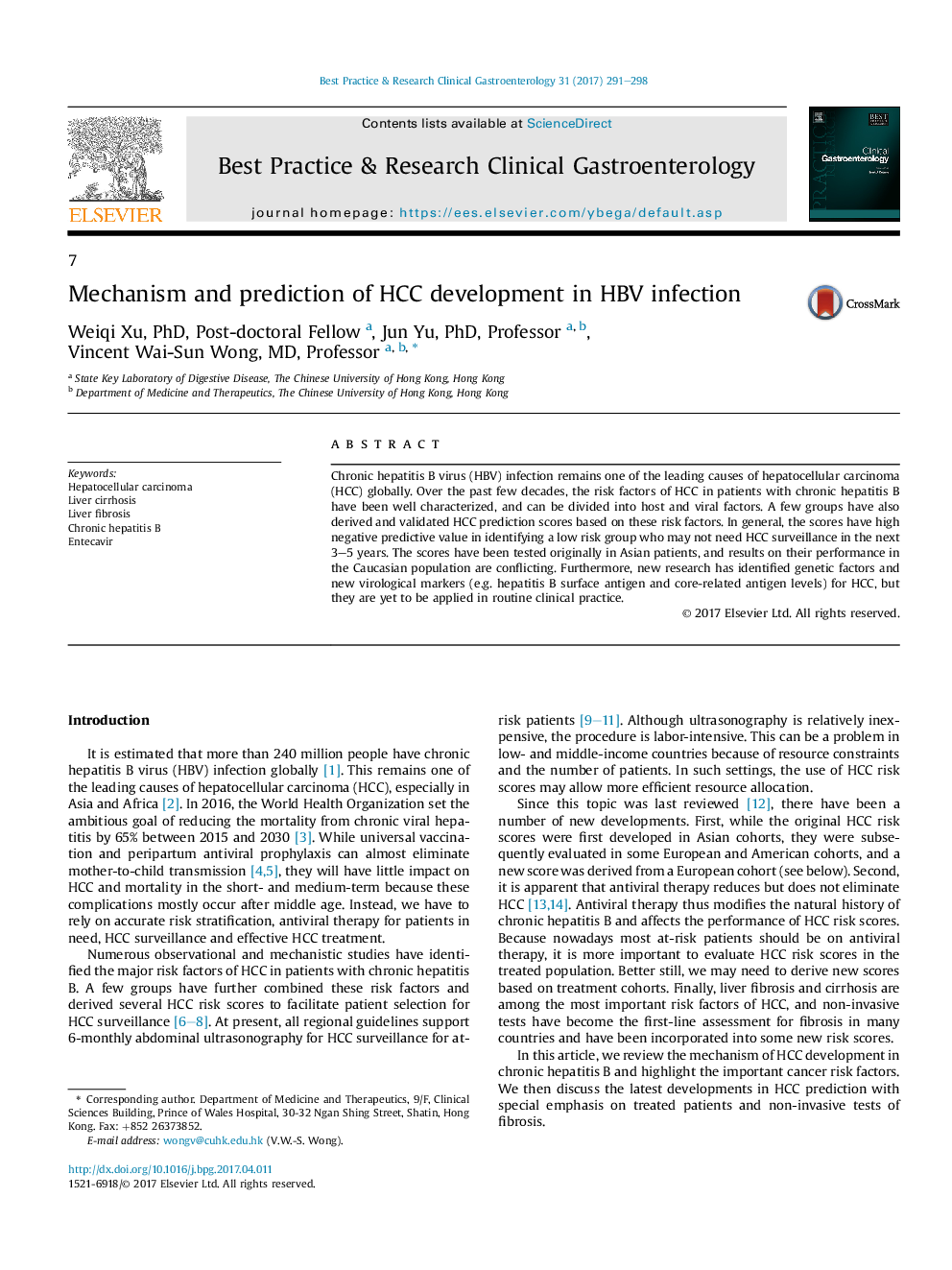| Article ID | Journal | Published Year | Pages | File Type |
|---|---|---|---|---|
| 5654497 | Best Practice & Research Clinical Gastroenterology | 2017 | 8 Pages |
Chronic hepatitis B virus (HBV) infection remains one of the leading causes of hepatocellular carcinoma (HCC) globally. Over the past few decades, the risk factors of HCC in patients with chronic hepatitis B have been well characterized, and can be divided into host and viral factors. A few groups have also derived and validated HCC prediction scores based on these risk factors. In general, the scores have high negative predictive value in identifying a low risk group who may not need HCC surveillance in the next 3-5 years. The scores have been tested originally in Asian patients, and results on their performance in the Caucasian population are conflicting. Furthermore, new research has identified genetic factors and new virological markers (e.g. hepatitis B surface antigen and core-related antigen levels) for HCC, but they are yet to be applied in routine clinical practice.
